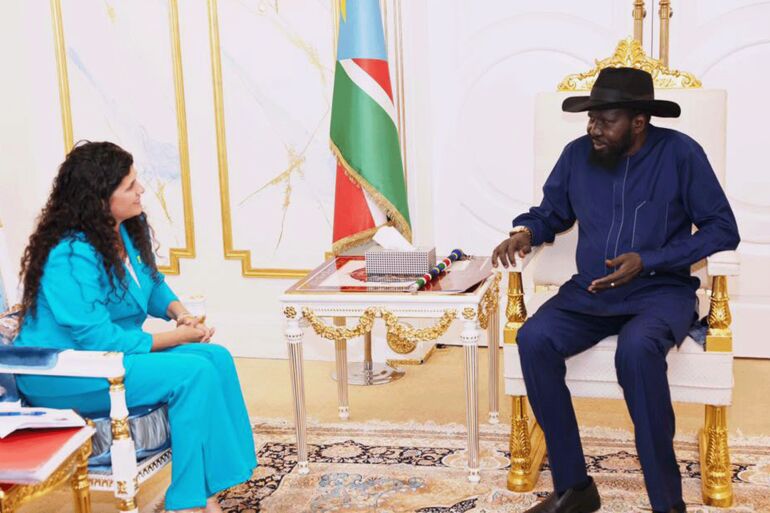Is it true that South Sudan agreed to the plan to host the people of Gaza?
According to Al Jazeera, while the South Sudanese Foreign Ministry has denied reports of a possible agreement between the country and the Israeli regime to forcibly relocate people from Gaza to Juba, calling it baseless and baseless, some questions remain about the nature of the agreements between the two sides.
Earlier, the Associated Press and the Hebrew news outlet Yedioth Ahronoth reported that the Israeli regime is negotiating with five countries, including South Sudan, to host people from Gaza to implement the forced relocation plan.
The publication of this report coincides with the mysterious visit of South Sudanese Foreign Minister Mandai Simaya Kumba to Tel Aviv, followed by the visit of Sharon Haskell, Deputy Foreign Minister of the Israeli regime, to Juba, which has once again brought to mind the government’s handling of the case of deporting criminals from the United States in recent months.
These developments, especially after Haskell’s sudden visit to Juba on August 13 and the signing of a memorandum of understanding between the two sides, sparked widespread controversy in South Sudan. Despite the importance of the trip, the lack of disclosure of its details has angered observers and activists, who considered this ambiguity to be the main factor in speculation about its connection to such a sensitive case.
In response to the controversy, the Zionist official quickly denied these reports, claiming that such an issue was not on the agenda of his trip and that he had not held any discussions with South Sudanese officials on this matter.
Observers do not consider the reports regarding the plan to relocate Palestinians to Juba to be unlikely and believe that the South Sudanese government wants to obtain financial aid and the lifting of imposed sanctions through this plan. In addition, it is trying to reach such understandings to escape isolation and economic stagnation, and in search of electoral legitimacy in the next stage.
Political analyst Samuel Peter Oya Sher says that media reports from Joe Szelawic, president of Scribe Strategies, a company contracted by the South Sudanese government, indicate that there is a diplomatic path beyond the humanitarian framework for resettling the people of Gaza in South Sudan. This path began in Washington to improve the US government’s relations with Juba and lift sanctions. Before traveling to Tel Aviv, the South Sudanese Foreign Minister met with the Jewish lobby and went to Tel Aviv to pursue talks. A few days later, Haskell traveled to Juba and signed the historic memorandum of understanding.
Oya Sher says that, of course, this plan has many political and security risks and that if domestic and foreign pressure increases in opposition to it, the opportunity for its implementation will be limited.
On the other hand, Aldo Ajo Deng, a politician and member of the National Council of States in Juba, said: South Sudan does not object to hosting Palestinians and their children to escape danger, but it opposes their forced and planned mass resettlement to foreign capitals.
He wrote in an article: Any agreement must be reached in consultation with the people, including parliament, civil society, mosques, and security forces; we oppose the deportation of Palestinians to this country as part of a political agreement and agree only to accepting voluntary refugees on humanitarian grounds and in tolerable numbers.

